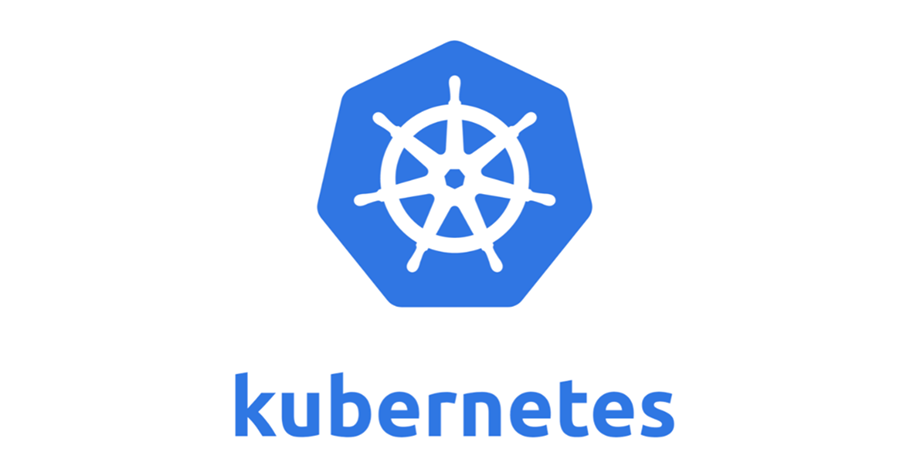In today’s fast-paced tech scene, “cloud computing” and “DevOps” have become the cool kids on the block. They’re not just buzzwords; they’re changing the game for businesses, making everything smoother and faster. So, buckle up as we take a closer look at what they are, why they matter, and how they’re shaking up the tech world!
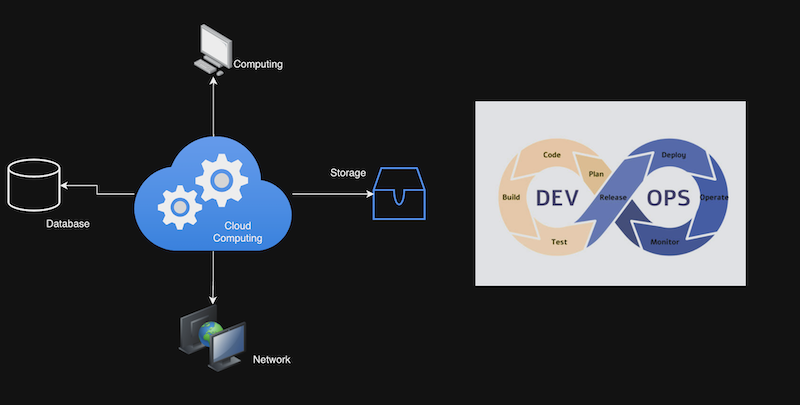
What is Cloud computing how it works?
Setting up on-premises servers can be a hassle, mainly due to the need for space and the hefty maintenance costs. It’s like building your own mini data fortress from scratch! So imagine having access to a vast virtual space where you can store data, run applications, and perform complex computations without relying solely on your local hardware. This is essentially what cloud computing offers. Instead of hosting everything on your local devices, cloud computing leverages remote servers connected through the internet mainly Web 3.0 to provide on-demand computing resources.
The following are the benefits of Cloud Computing:
1] Scalability: Cloud services are like elastic bands—they stretch or shrink as needed. Whether you’re launching a startup or handling a sudden surge in traffic, the cloud adjusts seamlessly. It’s like having a magical backpack that grows with your adventures.
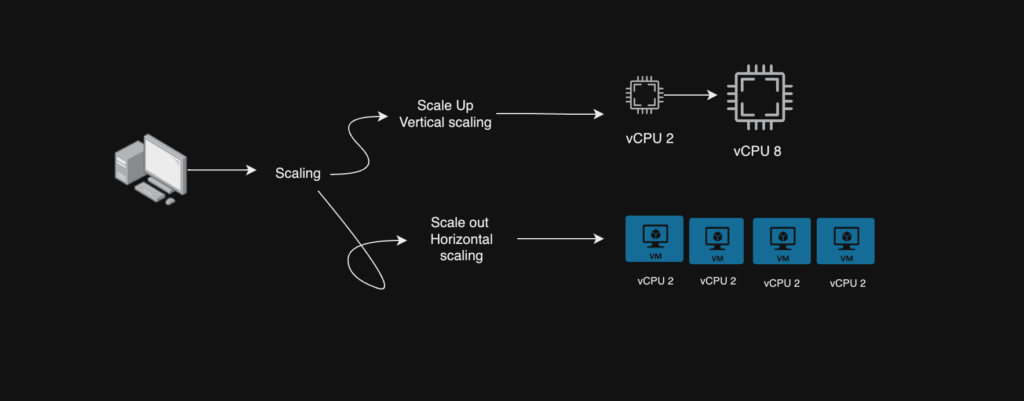
2] Cloud computing cost benefits: Imagine paying only for the coffee you drink, not the entire coffee shop. Cloud services follow the same logic. No hefty upfront costs—just pay for what you consume. It’s like having a budget-friendly genie in your corner.

3] Accessibility: With cloud resources, you can access your work from anywhere—be it a tropical paradise or your cozy couch. It’s like having a virtual passport to productivity as you can access resources from anywhere with an internet connection, promoting remote work and collaboration.
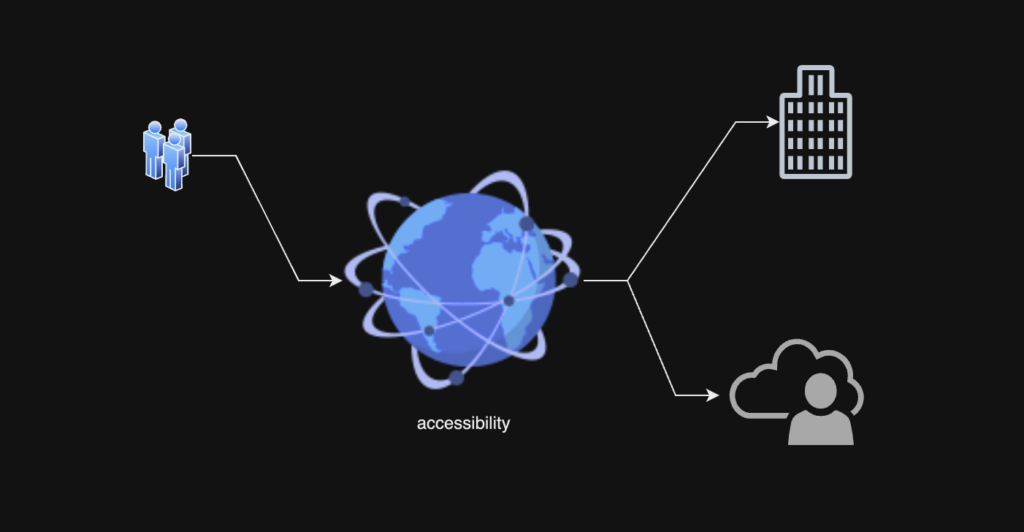
4] Reliability: Cloud providers are the guardians of uptime. They’ve got backup generators, redundant servers, and a watchful eye on your data. Say goodbye to “404 Not Found” messages—it’s like having a personal bodyguard for your website.

5] Cloud services transcend borders: For successful business transformation expanding into a new market is one of the most valuable business outcomes to consider. Imagine you’re a cosmic explorer, charting uncharted territories. Expanding into a new market is akin to planting your flag on a distant planet. Just like that, with Cloud computing, the ability to swiftly allocate resources without long-term commitments empowers leaders to explore new horizons and carry their ideas across continents. Only summon the required resources without long-term vows. This allows for rapid deployment near customers or operations without the hassle of setting up a data center, ensuring global connectivity, and meeting customer demand on the fly. It’s like having a fleet of digital hot air balloons that carry your ideas across continents.
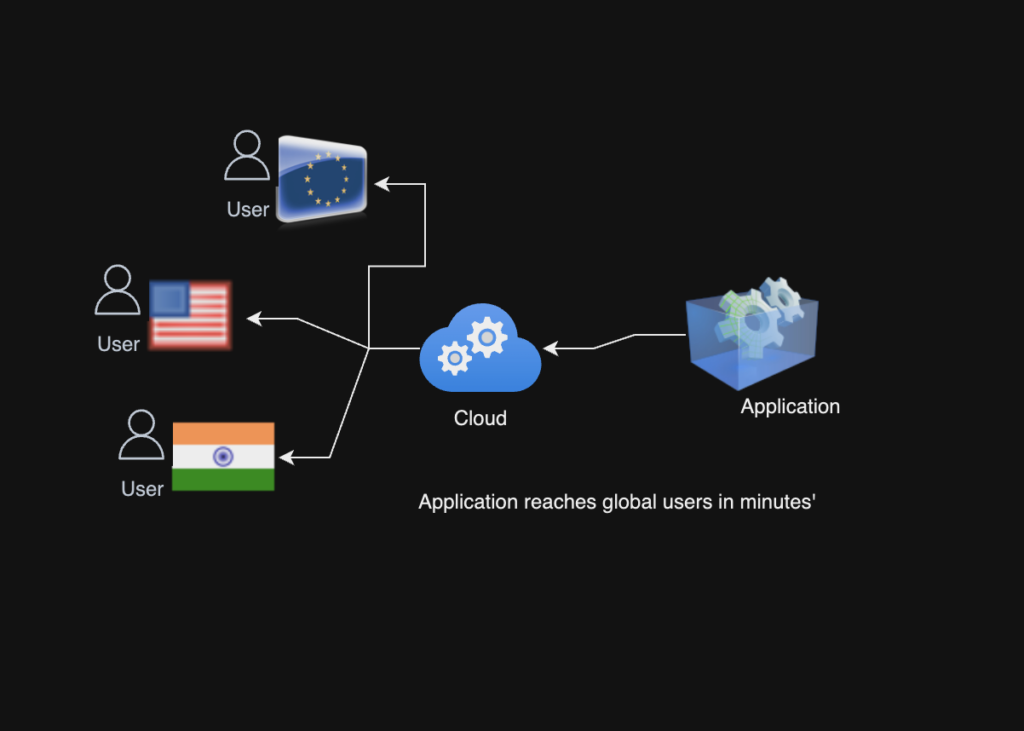
DevOps in simple terms
You can see DevOps like a dynamic duo, a tag team of superheroes. Under this model, development and operations teams are no longer working in silos. Infact, the two separate teams are merged into a single team where the engineers work across the entire application lifecycle, from development and test to deployment to operations, and develop a range of skills not limited to a single function.
The objective behind ‘Dev’ and ‘Ops’ teaming up together is to sync up their moves—testing, merging, and syncing code to increase an organization’s ability to deliver applications and services at high velocity. As such, they collaborate, brainstorm over coffee, and build cool stuff together. This is important since no business likes working in snail-paced development cycles. The outcome is, that businesses automate repetitive tasks, sprint faster and leap higher, speeding up software creation.
Benefits of DevOps
1] Faster Time-to-Market: DevOps rocks at automating repetitive tasks, such as continuous integration, testing, and deployment. This automation guarantees consistency, slashes errors, and boosts stability, waving goodbye to manual checks and troubleshooting. The result? Speedy software development and deployment, letting companies zip ahead and meet market demands pronto.
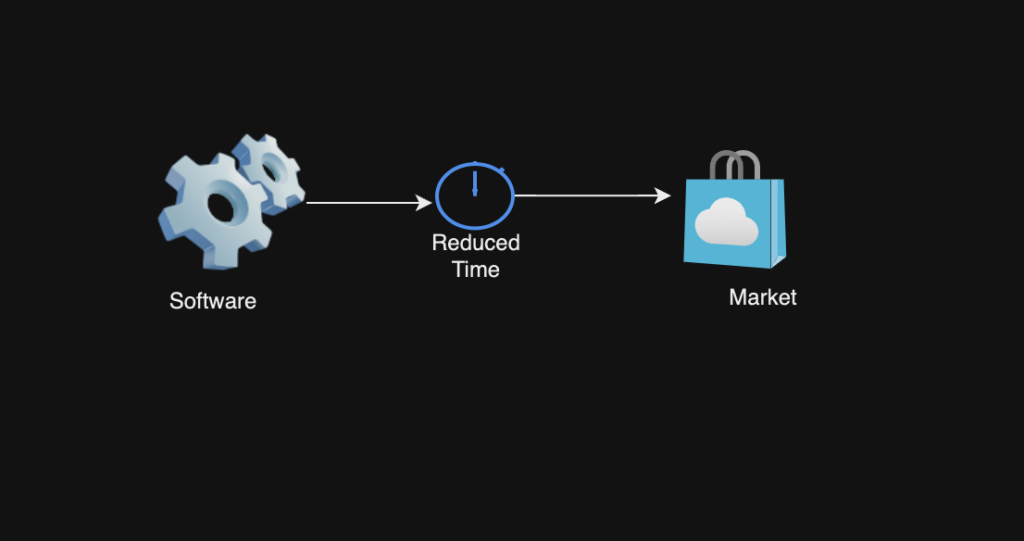
2] Enhanced Collaboration: DevOps parties with collaboration and innovation, ensuring smoother communication between development, operations, and other teams. It’s like a jam session where everyone brings their instruments and makes all the tech magic happen. The next time you see a smooth-running app in the cloud, tip your hat to DevOps.
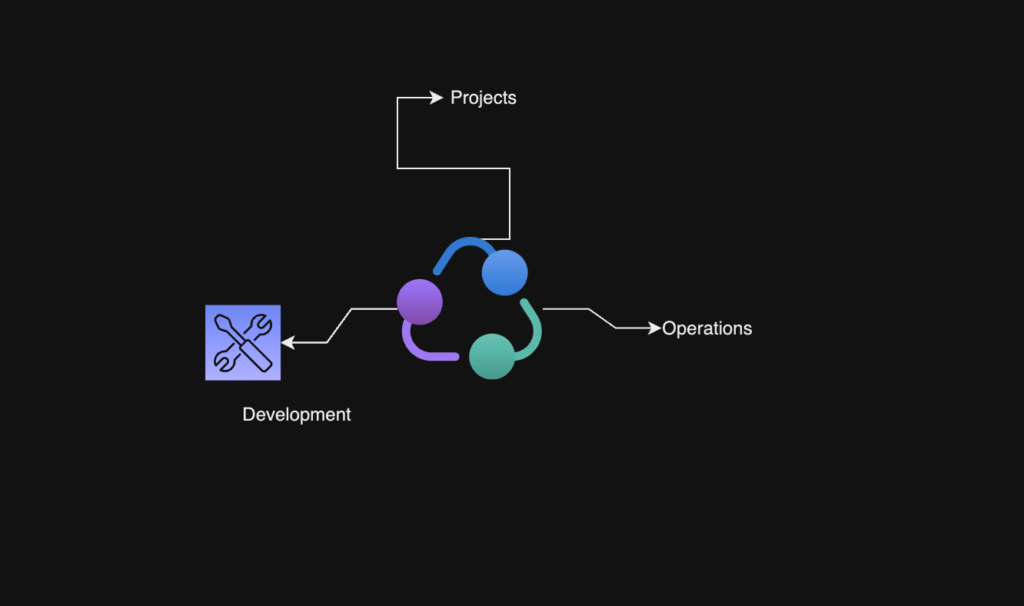
3] Reduced Risk: In DevOps, it’s crucial to nab those sneaky bugs and vulnerabilities pronto, long before they wreak havoc on your software. With automated testing and continuous monitoring, DevOps keeps a vigilant eye out and raises the alarm, the moment it spots trouble—a bit like having a digital Sherlock Holmes on the case.
4] Continuous Improvement: DevOps thrives on a never-ending loop of improvement, where insights and feedback from operations refine development practices along the way.
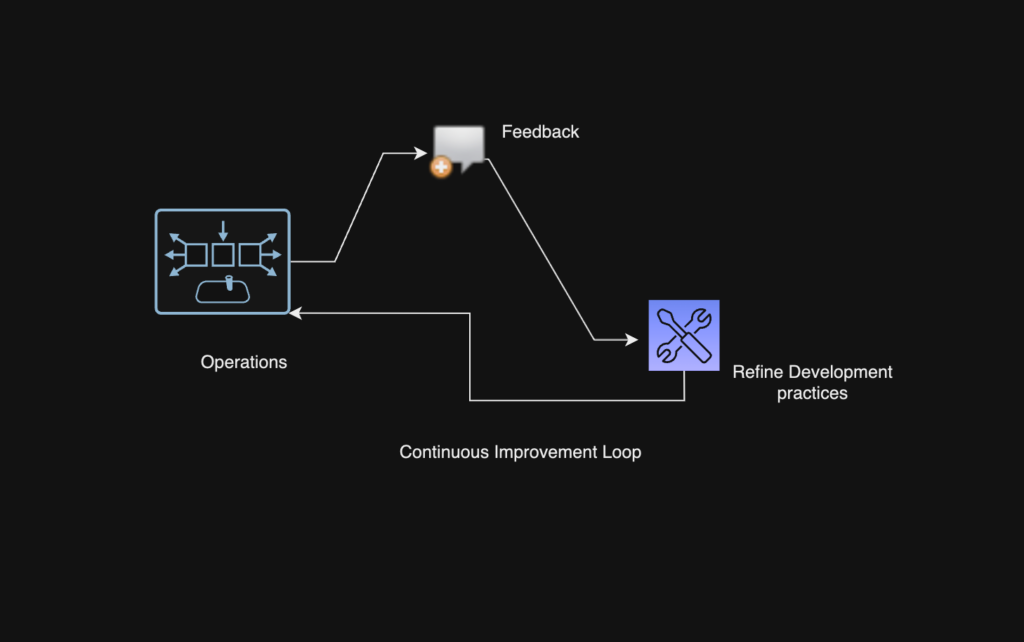
5] Higher Quality Software: Automated testing and frequent releases drive software quality up, resulting in happier customers overall.
Consider Cloud computing and DevOps your trusty compasses in the digital wilderness. Embrace them to navigate the tech maze like a pro.

